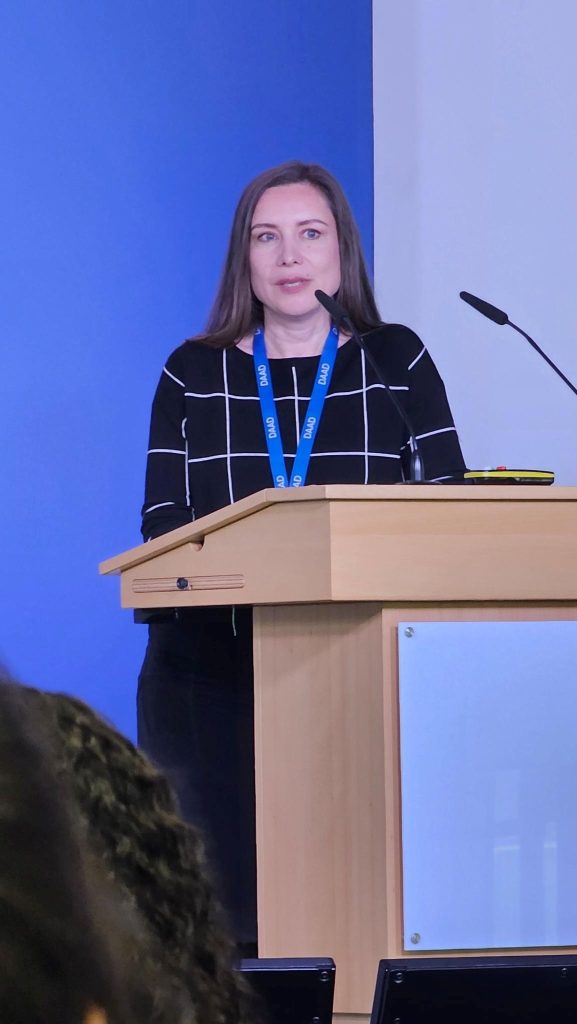Over 100 hydrogen experts gathered at the Federal Ministry of Research, Technology and Space in Bonn for the DAAD conference ‘Hydrogen Futures’. The event was related to the Science Year 2025, which is dedicated to energy of the future, and highlighted the scientific achievements of the research fellows of the DAAD Green Hydrogen scholarship programme. This programme provides a concrete example for successful implementation of the research demands identified during the Agenda process on Green Hydrogen.
Young and experienced experts came together to exchange ideas and to network with each other. The fellows’ research topics ranged from high temperature electrolysis, advanced hydrogen storage systems, an oil refinery case study and a network analysis of the German Bundestag to political ecology questions of green hydrogen in the Global South.
Lively panel discussions, workshops, pitches and poster presentations alternated. Among the invited key note speakers and panellists of the first day was Beatrice Coda, PhD, DG RTD Head of Unit C.2 – Clean Energy Transitions. She talked about the multifaceted EU policy support for hydrogen, the role of clean hydrogen in the European energy system, and international cooperation. She emphasised that, alongside bilateral and multilateral collaboration, regional collaboration is also highly relevant for implementing hydrogen projects and multiplying hydrogen valleys globally.
Dr. Nadine May, chair of the SET Plan TWG Hydrogen, gave a presentation on the latest developments in the new working group and explained how the SET Plan can promote cross-border cooperation in hydrogen research and innovation. Following a discussion on realistic hydrogen targets for Europe, she argued that the SET Plan is a long-term, voluntary initiative designed to ensure the continuity and long-term commitment of political decision-makers. Long-term targets and visions need to be ambitious in order to be inspiring.
On the second day, Prof. Dr. Peter Wasserscheid, Director of the Helmholtz Institute Erlangen-Nürnberg for Renewable Energy, spoke in his key note about some misconceptions regarding energy efficiency and the limitations of green hydrogen in defossilising the economy. He pointed out that it is not sufficient to focus solely on hard-to-abate sectors in order to successfully scale up hydrogen. We are in an early phase of the transition and we need to produce hydrogen and its derivatives where there is cheap renewable energy in order to compete with fossil fuels.
